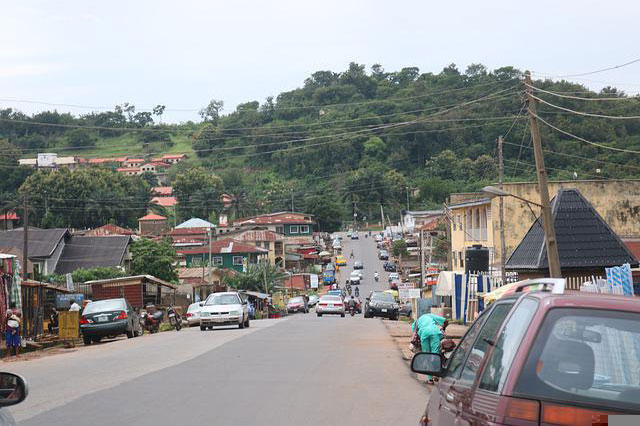Abuja – Nigeria is a giant oil-rich nation that is home to a vibrant tech scene and booming entertainment sector.
But many middle-class Nigerians are heading abroad or say they plan to do so, hoping for a brighter future in Europe or North America.
Here’s a snapshot on the phenomenon of “japa”, the word in Yoruba meaning “to flee”.
Nigeria’s problems
Nigeria’s economy and population are the biggest in Africa and the country has benefited from a half-century-old bonanza from oil and gas.
Despite these advantages, ramshackle infrastructure, inequality and the problems of poverty are a major headache.
More than 80 million of the country’s 210 million live below the poverty line, according to the World Bank.
Between 2010 and 2020, the country’s unemployment rate rose five-fold to more than 30 percent. In July, inflation reached almost 20 percent.
Many Nigerians are deeply worried by worsening insecurity, with criminal gangs kidnapping people for ransom in northern and central states and jihadist groups waging an insurgency in the northeast.
Graft is also a deterrent for would-be entrepreneurs. Nigeria was ranked 154 out of 180 in Transparency International’s latest Corruption Perceptions Index.
Emigration
According to the UN’s Department of Economic and Social Affairs, the number of international migrants from Nigeria in 2020, the latest year for which figures are available, was 1.7 million, up from 990 000 a decade earlier.
Nigerian authorities record the number of citizens travelling in and out, but do not register whether departing citizens are leaving to work or live permanently abroad.
As a result, figures for net migration and countries of destination are hard to come by.
However, data from countries which issue work visas gives an idea as to where Nigerian emigrants are heading.
Most stay within sub-Saharan Africa but the numbers heading to Europe and North America has increased considerably in recent years.
British statistics show that in 2019 – the year before Covid struck – about 14 000 UK study and work visas were issued to Nigerian nationals. That number, which includes dependents, almost quadrupled in 2021.
Skilled workers from the healthcare sector were the largest recipients with more than 16 000 visas out of about 22 000 granted since January 2021.
In Canada, more than 15 000 Nigerians were granted permanent residence in 2021 compared to about 4 400 five years prior.
Hurdles
Visas to countries like the UK, Canada and the US can be expensive and often require applicants to show they have enough funds to take care of themselves for the duration of their stay.
A post-graduate course in Canada, for example, including expenses and compulsory insurance, can cost about US$22,000 dollars.
“I have friends whose parents have sold their properties, their land for their kids to go and migrate,” said Chuka Okeke, a 33-year-old who is applying for schools in Canada and whose parents are providing support for him and his family to move.
It can take months or even years to complete the paperwork and meet all the requirements before the coveted visa is issued.
Emigration, especially from the middle class, means that Nigeria is among the top countries in the world for income from remittances.
But “japa” has also triggered an exodus of talent, especially among students and professionals in healthcare and banking.
Follow African Insider on Facebook, Twitter and Instagram
Source: AFP
Picture: Pixabay
For more African news, visit Africaninsider.com


